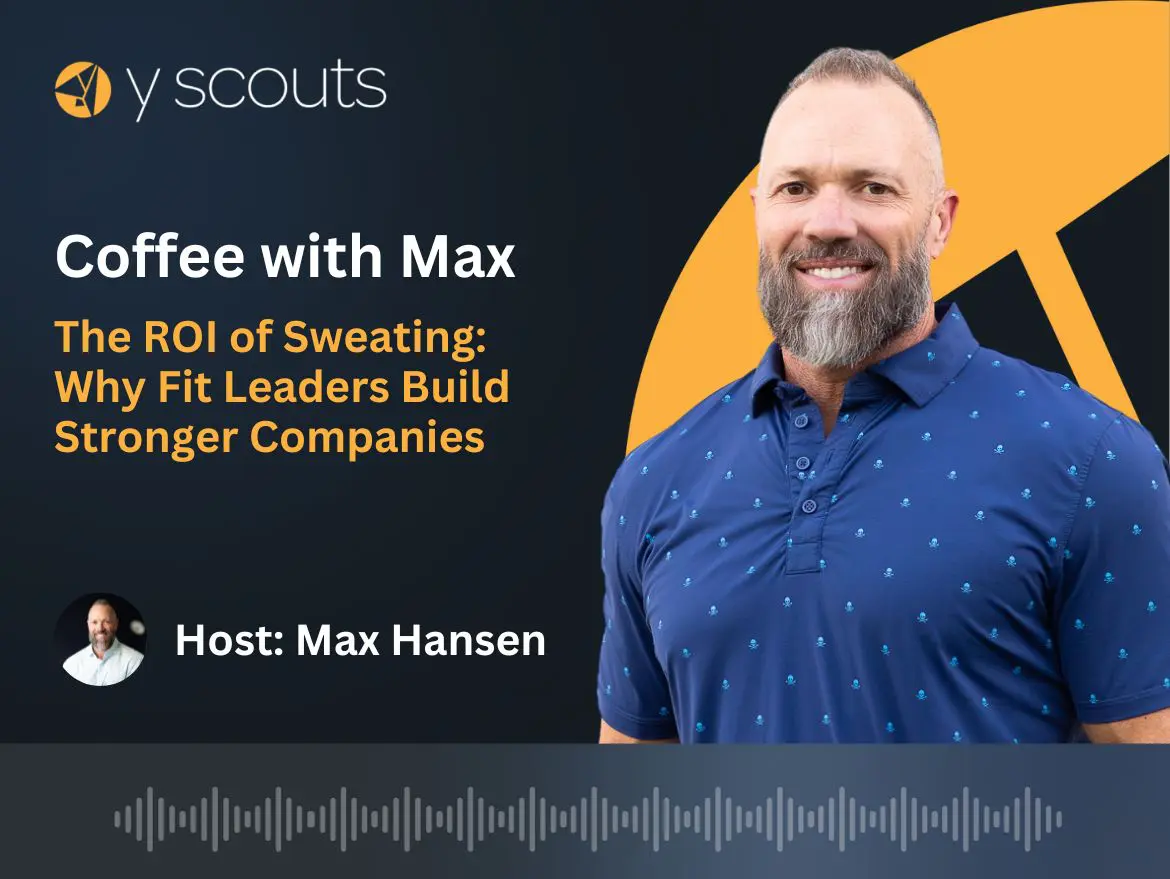Today I am interviewing Paul Spiegelman, the chief culture officer for Stericycle, a globally traded public company with over 25,000 employees. Prior to that, he was the founder & CEO of BerylHealth, a company that won nine awards as a best place to work. Paul is a New York Times bestselling author of three books about culture and employee engagement, and he speaks often on the topic to convince other businesses about the power of values-driven leadership and the ROI of culture. He also acts as CEO of the Small Giants Community, a membership organization of small-business leaders who believe that as a business you don’t have to be big to have a big impact.
Paul says the relationship between culture and building a great business has become a passion for him, discussing his journey from leaving a career at a law firm to collaborate with his two brothers to create a revolutionary new company. He reflects on the values his parents instilled in him and his brothers, and how it renders them kind, caring people with good core values and a strong potential for leadership.
Paul genuinely believes culture lies in both the grassroots origins and the outreach strategies of the business. He also feels companies flourish by selling who they are, not what they do. This episode is full of endearing lessons about family, teamwork, and genuine leadership that everybody will appreciate. Enjoy this interview with Paul Spiegelman.
Table of Contents
ToggleShow Highlights
- 2:10 – Paul Spiegelman practiced law before moving into the call center space. How culture played into it
- 7:38 – Family feelings on company culture
- 10:06 – Story of a major, multimillion-dollar call center he was trying to win a contract for
- 19:48 – Why it’s hard for seasoned leaders to express how much they care
- 23:52 – Work/life balance vs. work/life integration
- 27:50 – Acquisition of BerylHealth by Stericycle
- 45:17 – Treating culture like a process, and being CEO of Small Giants Community
- 49:05 – Time frame of Small Giants (three years)
- 53:18 – Recruiting
- 57:32 – Purpose, Appreciation & Learning pillars – focus on learning to make a transition into becoming more present with family, work, etc.
Show Links
- Paul Spiegelman site
- Stericycle
- “Small Giants: Companies That Choose To Be Great Instead Of Big” book by Bo Burlingham
Paul Spiegelman Podcast
You practiced law for a couple of years before starting BerylHealth, a call center focused in the healthcare space. I could probably arrive at the conclusion that you would never become such a culture champion. How did you truly become an ambassador for the positive effects of culture and what it’s done for the businesses you have been part of?
It’s safe to say that neither industry is probably known for really high cultural standards or internal engagement. The idea of culture and its relation to building a great business certainly became a passion of mine over the years. It’s something that grew over time and wasn’t necessarily by initial design. When I left the law practice to start my business with my two brothers, we did it because we knew we wanted to do something in business together at some point. It really wasn’t a call center business; it was a business to help people with medical conditions get help at home in the case of an emergency.
The “Help! I’ve fallen and I can’t get up” commercials — that wasn’t us, because we couldn’t afford to sell to the public, but the idea was the same. We could help people who had medical emergencies in their home, and we could send help out. We started in an 8×10 room, and we had a cot that one of us would sleep in because we were 24/7 day one. Then, we would put a receiving unit in their home that would dial our response center. We went out to start to sell those services to local hospitals so they could offer the service to patients leaving the hospital.
Actually, we didn’t know what a call center was; we were kind of a monitoring center. I would say that the whole cultural evolution began a couple years into the business, when we had 10 or 12 employees. Employees would comment, “This is a really fun place to work. We always do things together, socialize together, and you and your brothers seem to genuinely care about us as people.”
Then, we started to ask questions about where they used to work. The comments started to flow about how poorly they were treated. Our approach seemed unique. We didn’t know why — we can only conclude that our parents raised their boys to be good people and to have core values. My dad always said, “Always be nice, never burn a bridge, and treat people with respect.”
Not everyone acts that way in business. But we had something special — so we built on it. “We’re going to do more and more of this.”
Leadership is collaborative, team-focused and culture-focused.
Why do you think it’s so hard for some leaders — ones that have been around the block, who have some decent tenure under their belt — to express how much they care?
In my experience, it seems there are three different types of people. For the first type, it comes pretty naturally to them to care. It’s not something they have to fight to do or to express.
Then, you have the one who gets it, but they don’t know how to do this stuff. Teach me how to do it.
Then, the third doesn’t care at all. That’s been interesting for me — and I thought there was this third group. I sold my company to a large public company. For the last four years I’ve been the chief culture officer there. So, I’ve gotten to know many of these corporate executives who grew up in the “big company” world, and they were much more comfortable in the command-and-control-style of leadership. In many cases, I thought those people were jerks and didn’t care at all. When I got to know them, I found that they do indeed care and they have hearts — they just don’t know any different. Now, we’re challenging them by saying, “Did you realize there’s another way?”
Instead of just focusing on hitting the numbers, would you be open to the idea of focusing on your team? Then, you’d get this warm-and-fuzzy feeling about what it’s like to impact people’s lives. So, over the years, I’ve come to realize there are probably just the two camps.
Talk about the notion of work-life balance. Some of these leaders grew up in a time and place where this was a big emphasis. “I have to be a persona that fits my job title when I go to work, and then when I go home, I get to be husband, or father, or whatever my role is there.” There was a very clear line between my “work” self and my “rest of my life” self. Where do you fall on this notion of work-life balance?
I don’t think there’s any such thing. So I just call it “life.” Obviously, our smartphones keep us connected 24/7 to what’s going on with each other. I love that. Yes, we need an appropriate balance so that we pay attention (both to work and to our family). That’s why we use that message while building the culture in the company to say that we’re going to incorporate home and work together. Whether it be the quarterly newsletter that we would send to the homes of our employees with coloring books in the end for the kids to fill out. Or the Family Day, where we would bring in carnival rides to the parking lot and invite the families to come and participate. Or the annual contest for the T-shirt design that came from kids participating.
We’re there to not only be their work life, but also in many cases to be their social life, too. We’re in a call center with a lot of single moms, people making $29,000 or $30,000 a year living paycheck to paycheck. The least we can do is show that we care about them and also involve them and their families. Some of their best friends and relationships are with people at work — so let’s have Movie Night and get people together. We encourage people to socialize with each other.
The person who’s 100% focused on work, who comes home and perhaps doesn’t fully pay attention to what the kids are saying, and your spouse saying, “Snap out of it!” — that means I don’t have the correct balance.
With the acquisition of BerylHealth by Stericycle back in 2012, I imagine you had many thoughts racing through your mind. You’d been a part of BerylHealth, founding it, and running it for what would’ve been 30 years in 2015. What was going through your mind as the entrepreneur, as one of the founders, as the leader of the business being acquired?
Up until we sold, we never had any outside capital in the business. So I’m very proud of that, and I think it contributed to how we were able to build our culture. There came a time around 2009 when a few things were happening. One, the business had really grown and we saw a greater opportunity to accelerate our growth in healthcare. I had also diversified my own time; I had written a couple of books, I’d been doing some speaking, I had started some other organizations. So I saw some opportunity for me to do some other things.
We decided to raise some outside capital (hiring an investment banker, putting a book together, and it ended up getting a lot of attention at the time. It wasn’t a great time for deal-making, but we indeed got 20 bids on the company. We ultimately signed a letter of intent to sell the company to a private equity firm.
But the kind of questions you were just asking really hit me hard during the due-diligence phase. I started to question whether the culture of the organization could be sustained in a private equity-type environment. I also realized that if I was going to leave one legacy for myself, my family and the company, it was the survival of the culture we’d built. Or else, I’d be a hypocrite. Luckily at that time, we didn’t need that money to grow, but it was very opportunistic for us to go down that road. At the eleventh hour, with about two weeks to go, I walked away from the deal. While I can’t say that private equity is wrong, it’s really not compatible with the business we had built.
So, I went back to work and told everyone. The management team was mostly saying, now what do we do? How are we going to grow? I said we would build a new plan on our own. I started to rack up some debt, we maxed out our $5 million line of credit, I put money back into the company for the first time ever. We actually lowered our profitability by 50%. We needed to achieve a much more robust goal. But then, Stericycle approached me in November 2011. I’d never heard of this company. It turns out, they’re a waste disposal company in healthcare. Why would they be calling us?
I learned quickly that these big companies diversify, expand and get into new areas. A few years prior, they got into the patient communication business. My initial reaction was, Thanks but no thanks. I said from a valuation standpoint it wouldn’t even make sense, because we invested all this money. They kept at it. The initial offer was quite attractive — but we didn’t stop there; it took us almost a year to do it. I had several considerations — not just financial — because I didn’t want our culture swallowed up.
The turning point for me was meeting the CEO of Stericycle. He pulled me aside, and he said, “Paul, I’ve heard a lot about your company, your culture and what you’ve built. It sounds like you guys have a wonderful reputation. I don’t know if we can get a deal done with you guys, but I want to be honest with you: Our company has had tremendous financial success. We’ve been a Wall Street darling for years, very customer-focused. But we have never really looked at the employee as a key stakeholder in the business. As the new CEO, I want that to be my stamp on the business. I want to learn from you. Would you be open to me coming down to Texas see if I can learn what you’ve done?”
I said, “Of course! I’d be honored.” Two weeks later, he came down, we spent some time together, and I thought, this guy gets it. Once that started and I built other relationships in the business — those ensuing months — I thought, wow, our company culture would survive within this larger organization.”
For Paul Spiegelman and other podcast interviews from the Built On Purpose Podcast, please visit yscouts.com/podcast/.
Y Scouts, a leadership search firm, finds purpose-aligned and performance-proven leaders to help organizations achieve their missions faster. Ready to supercharge your leadership search and get the right person in your organization? Contact Y Scouts.






